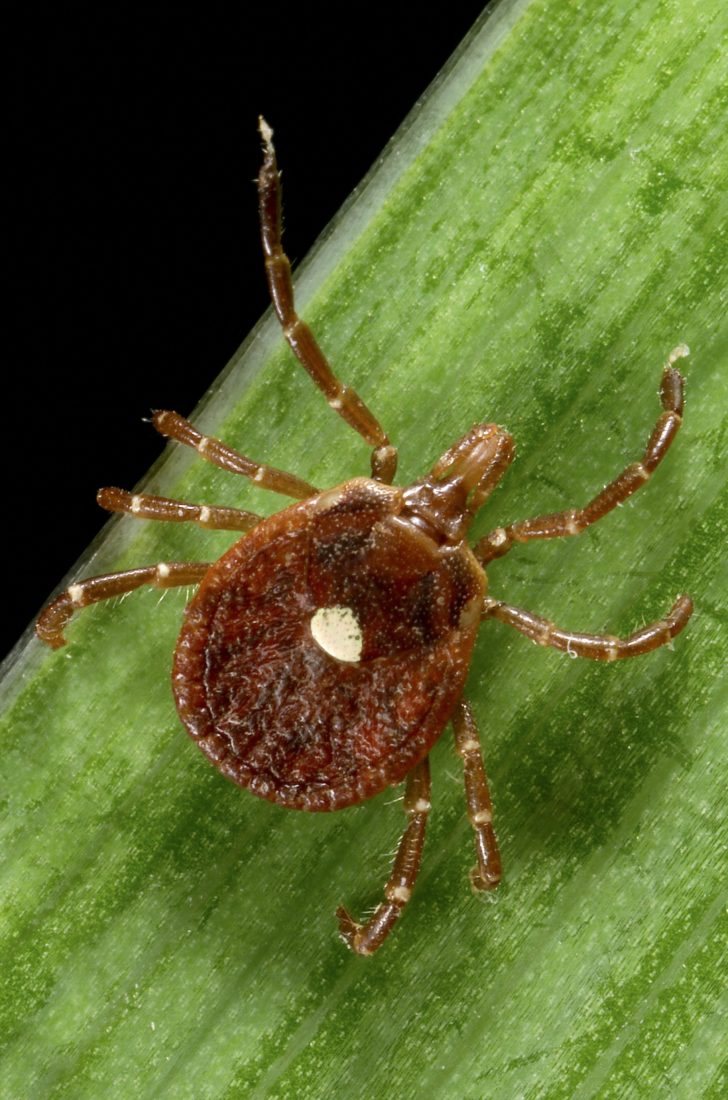In the summer of 2007, research doctors at the University of Virginia’s Allergy and Immunology Clinic began hearing strange stories from patients: dozens of Virginians were claiming they had suddenly become allergic to meat. A meal of barbecue or a hamburger or a pork chop would produce hives, rashes, fever, nausea, or some awful combination of all four. Allergies come in various forms, but this was atypical.
“It was strange because you’re usually allergic to one thing–maybe you react to squash, but you can safely eat zucchini,” explains Dr. Scott Commins, a lead researcher at the lab. But the indiscriminate nature of the sensitivity was a clue. The flesh of lower mammals, the researchers realized, shares a common feature: a high amount of a sugar called alpha-gal. Conducting tests, researchers found that when the sugar was introduced to patients’ blood samples, it provoked an allergic response. Alpha-gal, they concluded, was their culprit. But the question remained: What was causing the allergies to begin with?
First, they focused on geography. They mapped the locations of patients then compared this spread to other epidemiological maps, looking for a similar distribution. Two fit the bill: A geographical spread of Rocky Mountain Spotted Fever, a bacterial infection transferred through tick bites, and the population range of Amblyomma americanum, commonly known as lone star ticks. “That made us question, could this be a tick thing?” Commins recalls.
Further research revealed that indeed it was a tick thing—specifically, lone star ticks, tiny white-spotted specks of brown, native to the southeastern United States and Mexico. Their bite transfers alpha-gal into the bloodstream, which triggers an antibody response in most humans (similar epidemics have been recorded in Australia with a different tick species). And though some are stuck with the allergy for years, for most it disappears within a matter of months. One caveat though: the more lone star bites one sustains, the worse the allergy gets. This is why the hunting community suffers particularly badly.
Since Commins’ team published their findings in the Journal of Allergy and Clinical Immunology in 2009, the epidemic has spread well beyond the southeast. From a combination of land-use change, expanding deer and turkey populations, and climate change, the territorial range of lone stars has been expanding for decades, says Graham Hickling, director of the University of Tennessee’s Center for Wildlife Health. They now reach as far north as Maine. Left in their wake have been around five thousand involuntary vegetarians.
One of them is Steve Troxler, North Carolina’s Agriculture Commissioner. One recent summer he began suffering from daily fevers and rashes. “I started trying to narrow down what in the world was I doing to cause this reaction. The only thing I was doing was eating lunch!” he told a local television affiliate.
On Commins’ own research team, during a two-month span in the summer of 2010, three members came down with the allergy, including the lab’s head scientist. Naturally, the unlucky PhDs became convenient test specimens.
Today the alpha-gal epidemic continues unabated. Earlier this year, the Centers for Disease Control and Prevention reported that illnesses from tick, mosquito, and flea bites in the U.S. tripled from 2004 to 2016. But there are potential solutions. Commins’ team, now at the University of North Carolina, is exploring the possibility of a vaccine. Another idea, less a cure than a coping mechanism, involves the rearing of hogs which have been genetically modified to not have alpha-gal. This would make them edible to lone star victims. A cohort of the mutant hogs already exist in North Carolina, where they were bred for use in organ transplants.
But for the time being, the only true guard against alpha-gal is bite prevention. This means wearing long pants and closed-toe shoes, keeping to trails and deploying anti-tick spray. Deet is good. Commins also recommends permethrin, which should not be sprayed directly on the skin. The clothing brand Insect Shield sells outerwear infused with the chemical, which Commins’ patients tell him is effective. But, if through some bad luck you do get infected, poultry and fish don’t contain alpha-gal, so you can double down on the fried chicken.








